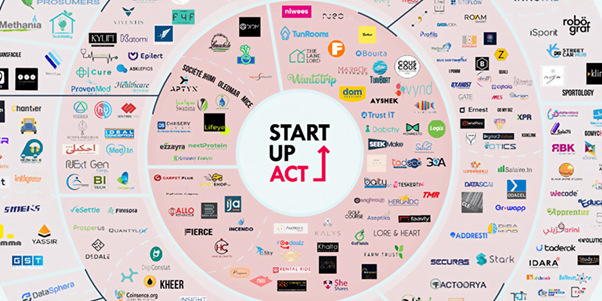Tunisian Startup Act : a catalyst for the African entrepreneurial ecosystem
Since its adoption in 2018, the Tunisian Startup Act has emerged as a crucial pivot in the development of the country's entrepreneurial ecosystem. As Startup Act 2.0 is in the works to address persistent challenges, its impact has been felt not only locally but also across Africa, inspiring other nations on the continent as it has been adopted as a reference by the African Union.

The Tunisian Startup Act, enacted in 2018, has entered its fifth year of existence, marking a significant milestone in the development of the country’s entrepreneurial ecosystem. Designed to promote the creation and development of startups, this legislative framework has integrated 20 measures to support entrepreneurs, investors, and startups, thus paving the way for a new era of innovation and economic growth in Tunisia.
Since then, the country has awarded over 1000 startup labels, providing crucial support to these emerging enterprises. The « Startup Tunisia » program, launched in 2019, aims to create an environment conducive to the growth of Tunisian startups on the regional and global stage, with the goal of creating 1000 startups and 10,000 jobs by 2024.
The Startup Act has revolutionized Tunisia’s approach to innovation. By offering attractive tax incentives for both startups and investors, it has encouraged the creation of a large number of new businesses, thus driving a real entrepreneurial boom. These measures have also fostered the growth of key sectors such as technology, financial services, and renewable energy, contributing to the diversification of the Tunisian economy.
Moreover, the Startup Act has strengthened the entrepreneurial ecosystem by facilitating market access for startups, streamlining administrative procedures, and promoting collaboration between the public and private sectors. Initiatives focused on enhancing entrepreneurial skills and promoting open innovation have also been implemented, thus bolstering the vitality of the startup community in Tunisia.
Startup Act 1.0 was important and necessary to create a new dynamic, but not sufficient to ensure its sustainability
Since then, while updates have been made, the legislation continues to evolve to meet evolving needs, as it enters its fifth year, the Startup Act has a mixed record: with notable successes recorded, it still faces several challenges. As noted by Smart Capital, the management company responsible for implementing Startup Tunisia, which « aims to make Tunisia a startup country at the crossroads of the Mediterranean, the MENA region, and Africa. » While it considers the advances brought about by the Startup Act in the Tunisian tech ecosystem « spectacular, » Smart Capital thus qualifies: « Startup Act 1.0 was important and necessary to create a new dynamic, but not sufficient to ensure its sustainability. »
The slow pace of administrative processes, the lack of funding for early-stage startups, and shortcomings in training and support remain major obstacles to the growth of the entrepreneurial ecosystem. Moreover, the need to strengthen intellectual property protection and promote female entrepreneurship remains a priority to ensure the sustainability and inclusivity of economic growth.
Startup Act 2.0 in the works

However, these challenges also offer opportunities for improvement. By investing in entrepreneurial education, implementing mentoring and coaching programs, and strengthening links between universities, businesses, and government agencies, Tunisia can create an even more conducive environment for innovation and startup growth. Startup Act 2.0, whose enactment is planned for this year, must provide concrete answers to these crucial issues.
Beyond Tunisian borders, the Startup Act has attracted the interest of the African Union, which has adopted it as a reference, as well as other countries on the continent. Similar initiatives have thus emerged in Algeria, Senegal, and Rwanda, more recently in Côte d’Ivoire, thus illustrating the positive influence and regional impact of the Tunisian model.







